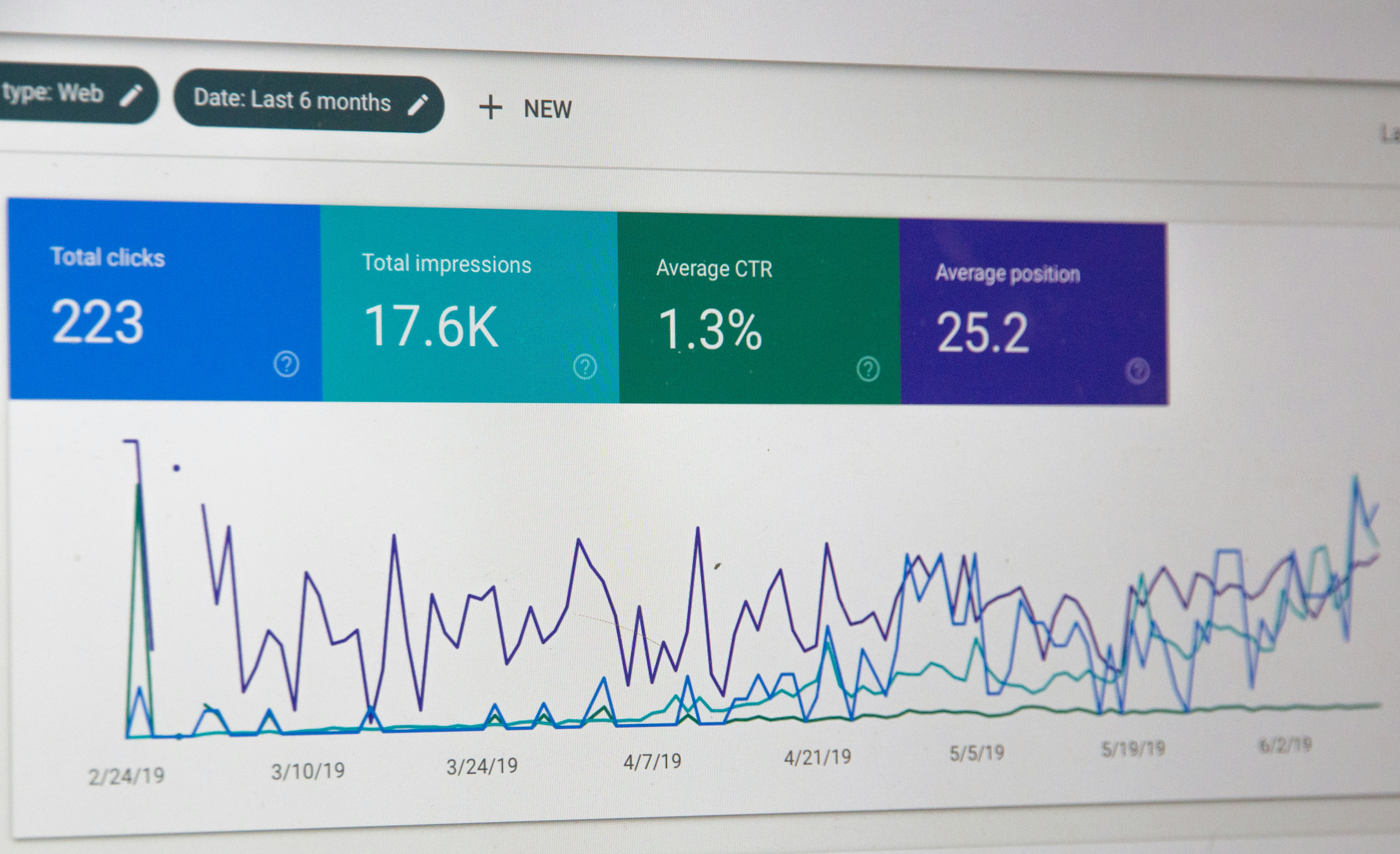If you're looking to boost traffic to your website for successful affiliate marketing, you've come to the right place. In this article, we'll share some effective strategies that can help you increase your website's visibility and attract more potential customers. From optimizing your website for search engines to leveraging social media platforms, we've got you covered. So, let's dive into these proven techniques that will drive more traffic to your website, ultimately leading to higher sales and greater success in the world of affiliate marketing.
Understanding the Basics of Affiliate Marketing
Affiliate marketing is a business model that allows you to earn commission by promoting and selling other people's products or services on your website. By becoming an affiliate marketer, you can leverage the power of your website's traffic to generate income.
Defining Affiliate Marketing
Affiliate marketing is the process of earning a commission by promoting and selling other people's products or services. As an affiliate marketer, you will receive a unique tracking link that identifies customers who have made a purchase through your referral. When a sale is made using your affiliate link, you earn a commission.
Determining the Relevance of Affiliate Marketing to Your Website
Before diving into affiliate marketing, it is important to determine if it is a relevant strategy for your website. Consider the type of content you create and the needs of your audience. If the products or services you can promote align with your content and audience, then affiliate marketing can be a valuable addition to your website.
Identifying Potential Affiliate Marketing Partners
Finding the right affiliate marketing partners is crucial to your success. Look for companies that offer products or services that are relevant to your audience and align with your brand. Research the reputation and track record of potential partners to ensure they are reliable and trustworthy. Additionally, consider the commission rates and support provided by the affiliate program.
Creating Quality Content
Quality content is vital for the success of your affiliate marketing efforts. Your content should be informative, engaging, and provide value to your audience. By creating high-quality content, you can build trust with your readers and increase the likelihood of them making a purchase through your affiliate links.
The Importance of Quality Content for Affiliate Marketing
Quality content is the backbone of your affiliate marketing strategy. It not only attracts and engages your audience but also establishes you as an authority in your niche. When your audience trusts your recommendations and finds value in your content, they are more likely to click on your affiliate links and make a purchase.
Identifying Audience Needs and Tailoring Content
To create quality content that resonates with your audience, it is important to understand their needs and preferences. Conduct market research, engage with your audience through surveys or comments, and analyze the performance of your existing content. By tailoring your content to address your audience's pain points and provide solutions, you can increase the effectiveness of your affiliate marketing efforts.
Running Regular Content Audits to Analyze Effectiveness
Regular content audits are essential to assess the effectiveness of your content and identify areas for improvement. Analyze your website analytics to determine which pieces of content are generating the most traffic and conversions. This data will help you understand what type of content performs well and guide your future content creation strategies.
Optimizing Your Website for Search Engines (SEO)
Search engine optimization (SEO) plays a critical role in driving organic traffic to your website. By optimizing your website and content for search engines, you can improve your visibility and increase the chances of attracting relevant visitors who may be interested in the products or services you promote as an affiliate marketer.
Understanding the Basics of SEO
SEO involves optimizing your website to improve its ranking on search engine results pages. This includes optimizing your website's structure, implementing relevant keywords, and creating quality content. By following SEO best practices, search engines will recognize your website as reputable and valuable, leading to higher rankings and increased visibility.
Optimizing Website and Content Structure
The structure of your website and content is important for both search engines and your audience. Organize your website's navigation and ensure that it is user-friendly and easy to navigate. Additionally, pay attention to your content structure by using headings, subheadings, and bullet points to make it scannable and digestible for readers and search engines.
Keyword Research and Implementation
Keyword research is a vital component of SEO. Identify relevant keywords that your target audience is searching for and strategically incorporate them into your website's content. Use keyword research tools to discover high-volume and low-competition keywords that can boost your website's visibility in search engine results.
Incorporating SEO-Friendly Images and Videos
Images and videos are valuable assets for engaging your audience, but they can also contribute to your SEO efforts. Optimize your images by using descriptive file names and alt text. When it comes to videos, ensure they have relevant titles, descriptions, and tags. By optimizing your multimedia content, you can improve your website's visibility and attract more traffic.
Leveraging Social Media for Traffic Increase
Social media platforms present a powerful opportunity to promote your website and attract more visitors. By strategically leveraging social media for affiliate marketing, you can reach a wider audience, increase brand awareness, and drive traffic to your website.
Understanding the Power of Social Media in Affiliate Marketing
Social media platforms have billions of active users, making them ideal channels for promoting your affiliate products or services. By leveraging social media, you can interact with your audience, share valuable content, and build relationships that can lead to increased website traffic and sales.
Choosing the Right Social Media Platforms
Not all social media platforms are created equal, and it's important to choose the ones that align with your audience and niche. Conduct market research to identify which platforms your target audience frequents the most. Focus your efforts on those platforms and create compelling content that resonates with the specific demographics and interests of each platform.
Creating Engaging Social Media Content and Campaigns
To stand out on social media, you need to create engaging content and campaigns that capture the attention of your audience. Use a mix of visuals, such as images and videos, along with compelling captions that encourage users to visit your website. Run promotions, contests, or giveaways to incentivize engagement and increase the visibility of your affiliate marketing efforts.
Integrating Email Marketing Strategies
Email marketing is a powerful tool for driving traffic and boosting conversions. By building an email list and implementing affiliate links in your newsletters, you can effectively promote your affiliate products or services to a targeted audience.
Building an Email List
Building an email list requires offering something of value to your website visitors in exchange for their email addresses. This could be a free e-book, a discount code, or exclusive content. Implement opt-in forms on your website and create landing pages that highlight the benefits of joining your email list.
Implementing Affiliate Links in Newsletters
Once you have built an email list, you can include affiliate links in your newsletters to promote relevant products or services. However, it's important to strike a balance between promotional content and providing value to your subscribers. Focus on educating and entertaining your audience while subtly incorporating affiliate links to increase the chances of conversions.
Following Best Practices in Email Marketing
To ensure the success of your email marketing campaigns, it's essential to follow best practices. This includes personalizing your emails, segmenting your audience based on their interests, and testing different strategies to optimize your campaigns. Pay attention to open and click-through rates, and refine your approach based on the data you gather.
Participating in Affiliate Networks
Affiliate networks connect affiliate marketers with merchants who have affiliate programs. These networks provide a convenient platform for finding and managing affiliate partnerships, as well as accessing valuable resources and support.
Defining Affiliate Networks
Affiliate networks are platforms that facilitate the relationship between affiliates and merchants. They act as intermediaries, handling payment processing, tracking affiliate links, and providing reporting tools. By joining an affiliate network, you gain access to a wide range of affiliate programs and resources.
Choosing the Right Affiliate Networks
When selecting affiliate networks to join, consider factors such as the reputation of the network, the commission rates, and the available affiliate programs. Research and read reviews to ensure that the network is reputable and trustworthy. Additionally, assess the support and resources provided by the network to ensure they align with your needs as an affiliate marketer.
The Role of Affiliate Networks in Boosting Website Traffic
Affiliate networks play a crucial role in boosting website traffic by connecting you with reputable merchants and helping you maximize your promotional efforts. These networks provide access to a variety of products and services that you can promote on your website, allowing you to diversify your income streams and increase your website's visibility.
Employing Pay-per-Click (PPC) Advertising
Pay-per-click (PPC) advertising is a method of driving targeted traffic to your website by paying for each click on your ad. By leveraging PPC advertising, you can reach a highly specific audience and increase the chances of generating conversions.
Understanding PPC Advertising
PPC advertising involves bidding on keywords relevant to your target audience and creating compelling ads that appear in search engine results or on other websites. You only pay when someone clicks on your ad, making it a cost-effective way to drive traffic to your website.
Building a PPC Advertising Strategy
To create a successful PPC advertising campaign, start by defining your goals and target audience. Conduct thorough keyword research to identify the most relevant and cost-effective keywords for your campaign. Craft compelling ad copy and optimize your landing pages to increase the chances of conversions. Continuously monitor and refine your campaigns to maximize their effectiveness.
Analyzing the Success of Your PPC Campaigns
Regularly analyzing the success of your PPC campaigns is crucial to understanding their effectiveness and optimizing your strategies. Monitor metrics such as click-through rates, conversion rates, and return on investment (ROI). Based on the data you gather, make informed decisions to improve your campaigns and drive more targeted traffic to your website.
Tracking and Analyzing Website Traffic
Analytics tools provide valuable insights into how visitors interact with your website, allowing you to make data-driven decisions to optimize your affiliate marketing efforts. By tracking and analyzing website traffic, you can identify areas for improvement and tailor your strategies to maximize conversions.
Using Analytics Tools
There are various analytics tools available that can help you track and analyze your website traffic. Google Analytics is a popular and powerful tool that provides detailed information about your visitors, their behavior, and the performance of your content. By leveraging these tools, you can gain valuable insights into your audience and make informed decisions to enhance your affiliate marketing strategies.
Identifying Key Performance Indicators (KPIs)
Key performance indicators (KPIs) are metrics that help you measure the success of your affiliate marketing efforts. KPIs may include the number of visits, conversion rates, average time on site, or the revenue generated through affiliate sales. By identifying and monitoring these KPIs, you can effectively track your progress and make adjustments to improve your results.
Optimizing Based on Traffic Analysis
Regularly reviewing and analyzing your website traffic data allows you to identify areas for improvement and make data-driven optimizations. Look for patterns and trends in your data, such as high-traffic landing pages or low-converting pages. By optimizing your website and content based on traffic analysis, you can increase engagement, conversions, and ultimately, your affiliate marketing earnings.
Utilizing Guest Blogging and Influencer Marketing
Guest blogging and influencer marketing are effective strategies for expanding your reach, driving traffic to your website, and building relationships with industry influencers. By collaborating with other bloggers or influencers in your niche, you can tap into their existing audience and gain exposure for your affiliate marketing efforts.
Understanding Guest Blogging and Influencer Marketing
Guest blogging involves writing and publishing articles on other websites within your niche. This allows you to showcase your expertise, gain exposure to a new audience, and drive traffic back to your website through your bio or by including relevant links in your guest posts. Influencer marketing, on the other hand, involves partnering with popular influencers in your niche to promote your affiliate products or services.
Identifying Potential Blog and Influencer Partners
To find potential blog and influencer partners, conduct market research to identify influential websites and individuals in your niche. Look for websites with high traffic and engagement, and influencers who have a strong following that aligns with your target audience. Reach out to these potential partners and propose collaboration opportunities that benefit both parties.
Creating Effective Collaborations
When collaborating with guest bloggers or influencers, ensure that the partnership is mutually beneficial. Provide valuable content or incentives to incentivize them to promote your affiliate products or services. Clearly communicate your expectations and goals, and continuously monitor and measure the success of these collaborations to refine your strategies and maximize results.
Optimizing Affiliate Links and Banners
Optimizing your affiliate links and banners is crucial for driving clicks and increasing the chances of conversions. By strategically placing your affiliate links and banners and measuring their effectiveness, you can enhance the visibility and performance of your affiliate marketing efforts.
Understanding the Importance of Link and Banner Optimization
Optimizing your affiliate links and banners involves ensuring that they are strategically placed within your content in a way that attracts attention and encourages clicks. The design, placement, and visibility of your links and banners can significantly impact their effectiveness.
Strategically Placing Affiliate Links and Banners
When placing affiliate links and banners, consider the flow and structure of your content to ensure they seamlessly integrate into the user experience. Avoid overwhelming your readers with excessive links or banners, and instead, strategically place them where they are most likely to generate clicks and conversions. Experiment with different placements to identify the most effective strategies for your audience.
Measuring the Effectiveness of Your Affiliate Links and Banners
To measure the effectiveness of your affiliate links and banners, use tracking tools provided by your affiliate programs or third-party tools. Monitor metrics such as click-through rates, conversion rates, and revenue generated to determine which links and banners are performing well. Based on these insights, adjust your strategies and optimize your affiliate marketing efforts for maximum results.
By understanding the basics of affiliate marketing and implementing strategies such as creating quality content, utilizing SEO techniques, leveraging social media, participating in affiliate networks, employing email marketing, and optimizing your affiliate links and banners, you can increase traffic to your website and maximize your earnings as an affiliate marketer. With consistent effort and continuous optimization, your affiliate marketing endeavors can thrive and bring you the success you desire.



